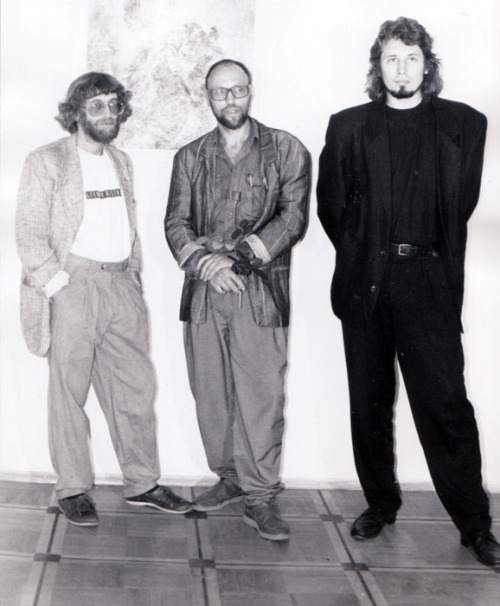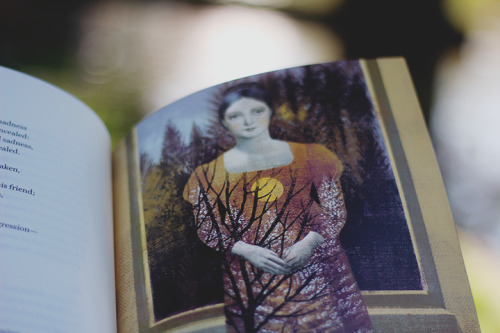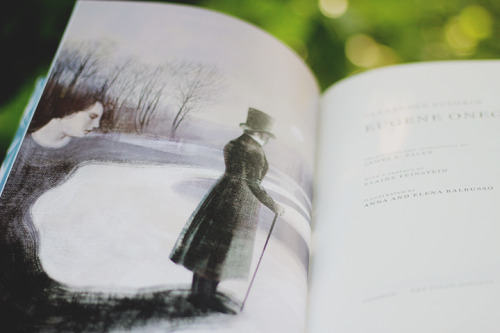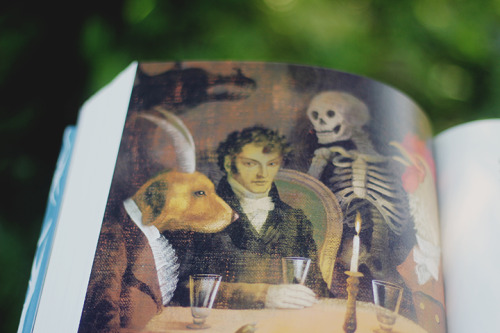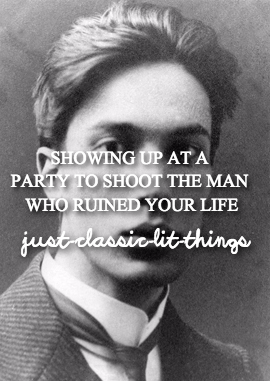#russian literature
Moscow Conceptualism - poet Lev Rubinstein, poet, writer and artist Dmitri Prigov and writer Vladimir Sorokin, 1991.
Post link
And all of them. Brothers Karamazov. I love them and I love this book so much, you know.
I want to draw some more russian literature fanarts but I’m not sure about the book. May be you want to see some characters or writers, I’d be glad to hear.
And guys, I also remind about commissions (Commissions prices: https://koramora.tumblr.com/post/187195925053/so-commissions)
Happy New year to you and read good books this year. :)




And the last one. No words. You know, everybody loves Alyosha. Such a good boy.
And yes, I decided to draw all brothers (except Smerdyakov, I don’t like him).
This is my favourite son of Fyodor Karamazov. This is my favourite character in this novel after may be only Fyodor Pavlovich. Ivan seems to me as a very interesting character and his dialogues like story about the Great Inquisitor is just incredible. It’s a pity that it payed not enough attention to him in the novel. Guess, in second/third book author was going to tell as more about him.
About the hell in his head.

All as before: against the dining-room windows
Beats the scattered windswept snow,
And I have not changed either,
But a man came to me.
I asked: “What do you want?”
He replied: “To be with you in Hell.”
I laughed: “Oh, you’ll foredoom
Us both to disaster.”
But lifting his dry hand
He lightly touched the flowers:
“Tell me how men kiss you,
Tell me how you kiss men.”
And his lustreless eyes
Did not move from my ring.
Not a single muscle quivered
On his radiantly evil face.
Oh, I know: his delight
Is the tense and passionate knowledge
That he needs nothing,
That I can refuse him nothing.
January 1, 1914
- Translated by Carl R. Proffer.




september 2021
“In a non-developing, constant state of tension, passions reach the highest possible pitch, and manifest themselves more vividly and convincingly than in a gradual process of change. It is this predilection of mine that makes me so fond of Dostoievsky, for me the most interesting characters are outwardly static, but inwardly charged with energy by an overriding passion.”
― Andrei Tarkovsky, from “Sculpting in Time: The Great Russian Filmmaker Discusses His Art.”
“Through poetic connections feeling is heightened and the spectator is made more active. He becomes a participant in the process of discovering life, unsupported by ready-made deductions from the plot or ineluctable pointers by the author. He has at his disposal only what helps to penetrate to the deeper meaning of the complex phenomena represented in front of him. Complexities of thought and poetic visions of the world do not have to be thrust into the framework of the patently obvious. The usual logic, that of linear sequentiality, is uncomfortably like the proof of a geometry theorem. As a method it is incomparably less fruitful artistically than the possibilities opened up by associative linking, which allows for an affective as well as a rational appraisal. And how wrong it is that the cinema makes so little use ofthe latter mode, which has so much to offer. It possesses an inner power which is concentrated within the image and comes across to the audience in the form of feelings, inducing tension in direct response to the author’s narrative logic. When less than everything has been said about a subject, you can still think on further. The alternative is for the audience to be presented with a final deduction, for no effort on their part, and that is not what they need. What can it mean to them when they have not shared with the author the misery and joy of bringing an image into being?”
―Andrei Tarkovsky, from “Sculpting in Time: The Great Russian Filmmaker Discusses His Art.”
“My idea of the real screen actor is someone capable of accepting whatever rules of the game are put to him, easily and naturally, with no sign of strain; to remain spontaneous in his reactions to any improvised situation. I am not interested in working with any other kind of actor, for he will never play anything beyond more or less simplified commonplaces. In this connection, what a brilliant actor the late Anatoly Solonitsyn was, and how I miss him now… Anatoly Solonitsyn was a born film actor, highly strung and suggestible. It was so easy to infect him with emotions, to achieve the right mood.”
― Andrei Tarkovsky, from “Sculpting in Time: The Great Russian Filmmaker Discusses His Art.”
“Why do people go to the cinema? What takes them into a darkened room where, for two hours, they watch the play of shadows on a sheet? The search for entertainment? The need for a kind of drug? All over the world there are, indeed, entertainment firms and organizations which exploit cinema and television and spectacles of many other kinds. Our starting point, however, should not be there, but in the essential principles of cinema, which have to do with the human need to master and know the world. I think that what a person normally goes to the cinema for is time: for time lost or spent or not yet had. He goes there for living experience; for cinema, like no other art, widens, enhances and concentrates a person’s experience—and not only enhances it but makes it longer, significantly longer. That is the power of cinema: ‘stars’, story-lines and entertainment have nothing to do with it. […] I see it as my duty to stimulate reflection on what is essentially human and eternal in each individual soul, and which all too often a person will pass by, even though his fate lies in his hands. He is too busy chasing after phantoms and bowing down to idols. In the end everything can be reduced to the one simple element which is all a person can count upon in his existence: the capacity to love. That element can grow within the soul to become the supreme factor which determines the meaning of a person’s life. My function is to make whoever sees my films aware of his need to love and to give his love, and aware that beauty is summoning him.”
— Andrei Tarkovsky, from “Sculpting in Time: The Great Russian Filmmaker Discusses His Art”
“It is not possible to catch the moment at which the positive goes over into its opposite, or when the negative starts moving towards the positive. Infinity is germane, inherent in the very structure of the image. In practice, however, a person invariably prefers one thing to another, selects, seeks out his [or her] own, sets a work of art in the context of his [or her] personal experience. And since everybody has certain tendencies in what he [or she] does, and asserts his [or her] own truth in great things as in small, as he adapts art to his [or her] daily needs he [or she] will interpret an artistic image to his [or her] own ‘advantage’. He [or She] sets a work into the context of his life and hedges it about with his aphorisms; for masterpieces are ambivalent and allow for widely differing interpretations.”
― Andrei Tarkovsky, from “Sculpting in Time: The Great Russian Filmmaker Discusses His Art”, tr. Kitty Hunter-Blair.
“The function of the image, as Gogol said, is to express life itself, not ideas or arguments about life. It does not signify life or symbolise it, but embodies it, expressing its uniqueness.”
― Andrei Tarkovsky, from “Sculpting in Time: The Great Russian Filmmaker Discusses His Art”, tr. Kitty Hunter-Blair.
“Artists are divided into those who create their own inner world, and those who recreate reality. I undoubtedly belong to the first–but that actually alters nothing: my inner world may be of interest to some, others will be left cold or even irritated by it; the point is that the inner world created by cinematic means always has to be taken as reality, as it were objectively established in the immediacy of the recorded moment.”
― Andrei Tarkovsky, from “Sculpting in Time: The Great Russian Filmmaker Discusses His Art”, tr. Kitty Hunter-Blair.
“We wrap our feelings up in words, try to express in words sorrow and joy and any sort of emotion, the very things that can’t in fact be expressed. Romeo uttered beautiful words to Juliet, vivid, expressive words, but they surely didn’t say even half of what made his heart feel as if it was ready to jump out of his chest, and stopped him breathing, and made Juliet forget everything except her love?
There’s another kind of language, another form of communication: by means of feeling, and images. That is the contact that stops people being separated from each other, that brings down barriers. Will, feeling, emotion–these remove obstacles from between people who otherwise stand on opposite sides of mirror, on opposite sides of a door…”
― Andrei Tarkovsky, from “Sculpting in Time: The Great Russian Filmmaker Discusses His Art”, tr. Kitty Hunter-Blair.
“What is art? […] Like a declaration of love: the consciousness of our dependence on each other. A confession. An unconscious act that none the less reflects the true meaning of life—love and sacrifice.”
― Andrei Tarkovsky, from “Sculpting in Time: The Great Russian Filmmaker Discusses His Art”, tr. Kitty Hunter-Blair.
“Clearly the hardest thing for the working artist is to create his [or her] own conception and follow it, unafraid of the strictures it imposes, however rigid these may be. It is far easier to be eclectic, to follow the routine patterns which abound […]. But there is a danger here of becoming hopelessly entangled. I see it as the clearest evidence of genius when an artist follows his conception, his idea, his principle, so unswervingly that he has this truth of his constantly in his control, never letting go of it even for the sake of his own enjoyment of his work.”
― Andrei Tarkovsky, from “Sculpting in Time: The Great Russian Filmmaker Discusses His Art”, tr. Kitty Hunter-Blair.
“In order to be free you simply have to be so, without asking permission of anybody. You have to have your own hypothesis about what you are called to do, and follow it, not giving in to circumstances or complying with them. But that sort of freedom demands powerful inner resources, a high degree of self-awareness, a consciousness of your responsibility to yourself and therefore to other people.”
― Andrei Tarkovsky, from “Sculpting in Time: The Great Russian Filmmaker Discusses His Art”, tr. Kitty Hunter-Blair.
When Victor Hugo said To love another person is to see the face of God, and Dostoevsky said To love someone means to see them as God intended them and The more you succeed in loving, the more you’ll be convinced at the existence of God and the immortality of your soul.
Thoughts on: The Idiot
Thoughts on: The Idiot
“It wasn’t the New World that mattered…Columbus died almost without seeing it; and not really knowing what he had discovered. It’s life that matters, nothing but life — the process of discovering, the everlasting and perpetual process, not the discovery itself, at all.”
The Idiot is one of Dostoyevsky’s most tragic novels I’ve read so far. While in Crime and Punishment we observe the…


“The man who lies to himself can be more easily offended than anyone else. You know it is sometimes very pleasant to take offense, isn’t it? A man may know that nobody has insulted him, but that he has invented the insult for himself, has lied and exaggerated to make it picturesque, has caught at a word and made a mountain out of a molehill–he knows that himself, yet he will be the first to take offense, and will revel in his resentment till he feels great pleasure in it.”
―Fyodor Dostoevsky, The Brothers Karamazov
Fyodor Dostoyevsky - Фёдор Достоевский
Very interesting video ;)


